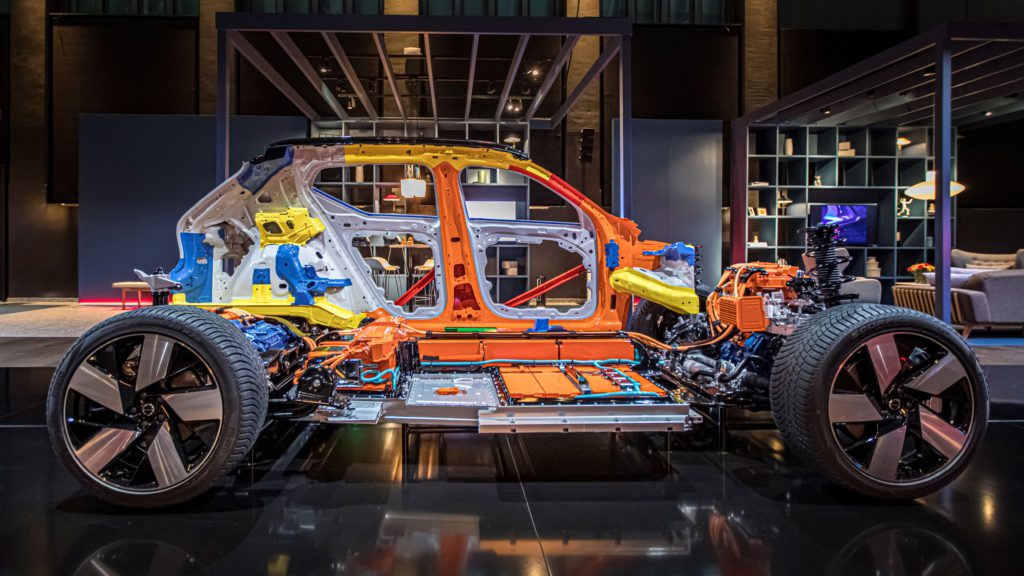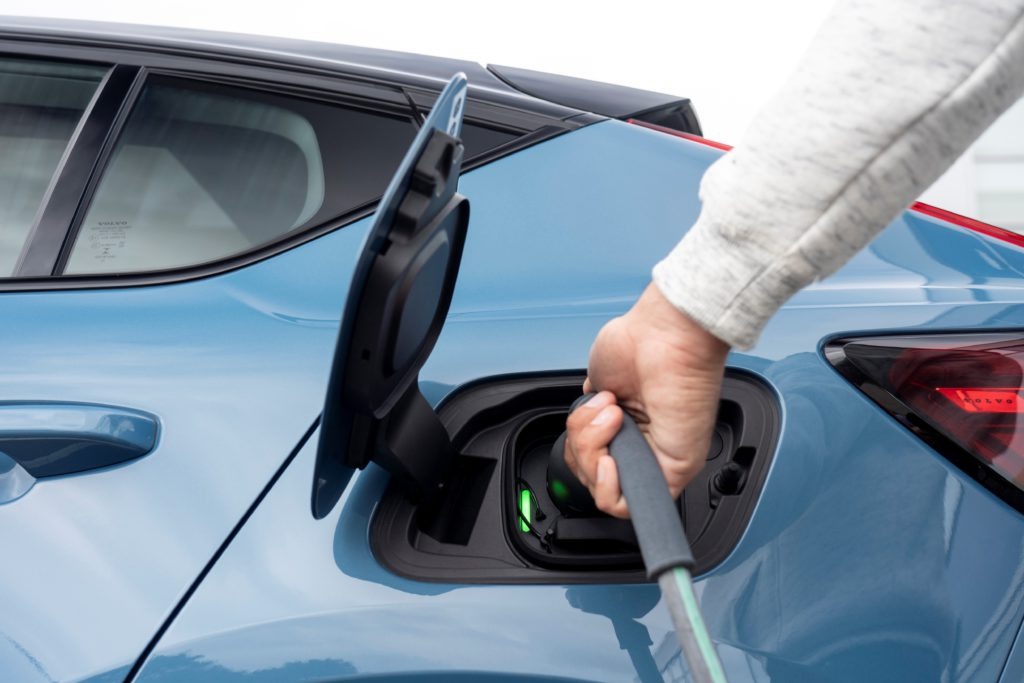Volvo sends clear climate-action signal by setting internal carbon prices
12 November 2021

Swedish carmaker Volvo Cars has taken another step towards making the company more sustainable and ‘future-proof’ by setting a price on carbon emissions from its operations of SEK 1,000 (€100.30) a tonne.
The company said it had deliberately set this price as it expects more governments to implement carbon pricing in coming years. Volvo has clear goals and wants to be ‘ahead of the regulatory curve’, saying it is the first carmaker to apply a carbon-pricing mechanism across its complete operations.
The price is also significantly higher than recommendations made by the International Energy Agency, with Volvo taking more action to cut its carbon footprint.
‘A global and fair price on CO2 is critical for the world to meet its climate ambitions, and we all need to do more,’ said Björn Annwall, Volvo CFO.
‘We strongly believe progressive companies should take the lead by setting an internal carbon price. By evaluating future cars on their CO2-adjusted profitability, we expect to accelerate actions that will help us identify and reduce carbon emissions already today,’ he added.
A need to lead
The manufacturer joined industry and government leaders this week to sign the ‘Glasgow Declaration on Zero-Emission Cars and Vans’ at the UN climate summit COP26. Volvo aims to be climate-neutral by 2040 and the declaration signals a commitment by companies and nations to phase out fossil-fuel cars in leading markets by 2035, and globally by 2040.
While major carmakers such as Ford, General Motors, and Jaguar Land Rover also signed the pledge to only sell zero-emissions vehicles by 2040, others failed to back the plan – including Volkswagen, Toyota, Renault-Nissan and Hyundai-Kia.
The green NGO Transport & Environment (T&E) criticised those that are notably absent. The group said with China, the US, Germany and France opting out – bearing in mind these are home to some of the world’s largest car markets – it would take more than a non-binding declaration to clean up transport pollution.
‘The car industry’s electrification plans place it ahead of regulators on climate action,’ said Julia Poliscanova, senior director for vehicles and e-mobility at T&E. ‘But these won’t materialise without actual targets to end car emissions by 2035 at the latest. The US and Europe, especially Germany and France, need to lead.’
Climate-action targets
Volvo has its own climate action targets, saying these exceed the commitments of the declaration. By 2025, it expects more than half of its global sales to consist of battery-electric vehicles (BEVs). The company also aims to be a fully-electric car brand by 2030.
By speeding up the phase-out of fossil-fuel vehicles that is more closely aligned with Volvo’s own timeline, it is hoping that more companies and governments will follow suit.
‘Our plan to be a pure electric-car maker by 2030 is one of the most ambitious in the industry, but we can’t realise zero-emission transport by ourselves,’ said Håkan Samuelsson, Volvo CEO. ‘The time for climate action is now.’
Future car projects will receive a ‘sustainability sense-check’, also imposing a CO2 cost for every anticipated tonne of carbon emission throughout the car’s life cycle. The goal is to guarantee that vehicle models would remain profitable, even under a stringent carbon-pricing scheme. Volvo also plans to provide more insights into its electrification strategy and transformation. From next year, the manufacturer will publish individual financial-performance figures for its electric and non-electric business.
The news comes after Volvo recently called for a worldwide boost to investments in clean energy production as this would ensure electrically-chargeable vehicles (EVs) could reach their optimum potential in terms of climate benefits.



